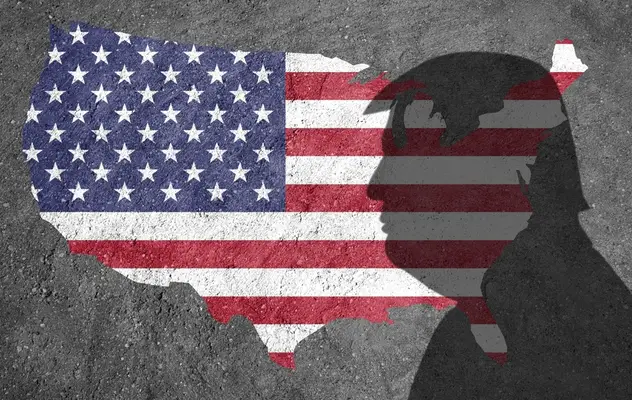With the 2026 U.S. presidential election looming, many are speculating how a Donald Trump victory could reshape the U.S. housing market.
His first term saw significant efforts to stimulate economic growth through tax cuts and deregulation, which had a ripple effect on housing demand.
If re-elected, Trump’s policies could drive down mortgage rates, ease regulations for developers, and boost homeownership opportunities, making homes more affordable for buyers. In this article, we explore how another Trump presidency could affect the housing market and what it means for buyers, homeowners, and investors.
Current State of the U.S. Housing Market
In 2026, the housing market is characterized by high mortgage rates and low housing inventory. The national median home price is $416,000, and the average 30-year fixed mortgage rate stands at 7.5%, limiting affordability for many buyers. Higher borrowing costs have slowed down transactions, and builders struggle to keep up with demand due to regulatory constraints. Rental prices have also risen, with rents increasing by 5% year-over-year, adding more pressure on households.
Key Market Statistics (2026):
- Median home price: $416,000
- 30-year fixed mortgage rate: 7.5%
- Rental price increase: 5% annually
- Inventory levels: Low nationwide
The Federal Reserve’s interest rate policies aimed at controlling inflation have contributed to high mortgage rates, further reducing home affordability. First-time buyers and Veterans are among those most affected, as they struggle to find affordable homes in competitive markets.
How Trump’s Policies Could Reshape the Housing Market
If Donald Trump wins the 2026 election, his pro-business approach will likely focus on reducing taxes, easing regulations, and pressuring the Federal Reserve to lower interest rates. These measures could significantly improve housing affordability by bringing down mortgage rates and encouraging new home construction.
1. Lowering Mortgage Rates
One of Trump’s key strategies is likely to be pressuring the Federal Reserve to lower interest rates. This could reduce mortgage rates, making homeownership more accessible to first-time buyers and existing homeowners looking to refinance. During his previous term, Trump frequently criticized the Fed for raising interest rates, urging the central bank to maintain lower borrowing costs to support the economy.
“If Trump returns to office, we could see mortgage rates drop to around 5-6%, significantly easing the financial burden on homebuyers,” says Marty Harlee, CEO of First Trust Financial. “A wave of refinancing and increased home sales would likely follow, stimulating the real estate market.”
2. Encouraging New Home Construction Through Deregulation
Deregulation will likely be another priority. Trump has a history of reducing government oversight to encourage business development, and loosening zoning and building regulations would allow developers to increase housing supply. By cutting red tape, Trump’s administration could encourage the construction of more affordable homes, addressing the current inventory shortage.
“Reducing regulatory barriers will increase the supply of housing and help stabilize home prices,” explains Karen Phillips, Policy Analyst at OpenDoor Mortgage Solutions. “This will be especially beneficial in fast-growing cities like San Antonio, where demand continues to outstrip supply.”
If supply increases, it could slow the rapid appreciation of home values, making housing more affordable for buyers.
Impact of Deregulation on Housing Supply
| Regulatory Change | Effect on Supply | Impact on Home Prices |
|---|---|---|
| Looser zoning regulations | Increased home construction | Stabilizes or lowers prices |
| Streamlined permits | Faster project approvals | Boosts housing inventory |
| Tax incentives for builders | Encourages affordable housing | Expands buyer options |
Tax Cuts to Boost Housing Demand
Trump’s Tax Cuts and Jobs Act provided tax relief to homeowners and businesses. If re-elected, Trump may introduce new tax incentives for homebuyers and developers, helping to increase demand. These could include expanded mortgage interest deductions or tax credits for first-time buyers.
“Tax cuts increase disposable income, encouraging more people to enter the housing market,” says Dennis Shirshikov, an economist at CUNY. “While this can drive housing demand, managing inflation will be critical to avoid driving up home prices.”
However, higher demand without sufficient housing supply could push prices higher in the short term, potentially counteracting the benefits of tax incentives.
Interest Rates and the Federal Reserve
While the Federal Reserve controls interest rates, Trump’s influence over economic policy could indirectly impact how the Fed approaches rate adjustments. Trump has previously discussed restructuring the Federal Reserve, suggesting that he may push for more direct control over rate decisions if elected.
During Trump’s first term, interest rates were significantly lower than they are today, making borrowing more affordable. A similar economic approach could help bring rates back down, stimulating growth in the housing market.
Table 2: Historical Interest Rates During Trump’s Presidency
| Year | Average 30-Year Fixed Rate |
|---|---|
| 2017 | 4.03% |
| 2018 | 4.54% |
| 2019 | 3.94% |
| 2020 | 3.11% |
If Trump successfully lowers rates again, borrowers could see significant savings, and the housing market may experience a surge in transactions and refinancing.
Benefits for Veterans and VA Loan Borrowers
Veterans, a group that frequently benefits from Trump’s policies, could see improved access to VA loans under a second Trump presidency. Lower mortgage rates would reduce monthly payments, and deregulation could increase access to VA-backed construction loans for new homes.
Many Veteran-friendly markets, like San Antonio, would likely see increased demand as housing affordability improves. Expanded housing programs for Veterans would also boost the appeal of using VA loans to buy homes.
Market Reaction and Expert Predictions
Experts have mixed views on how the housing market would react if Trump wins. While some believe that deregulation and tax cuts would stimulate the market, others warn that inflation risks could undermine long-term stability.
“Trump’s policies will create short-term boosts in demand, but balancing inflation will be critical,” says Kateryna Odarchenko, a political strategist. “Privatizing Fannie Mae and Freddie Mac could open new opportunities for investors, but it comes with risks.”
FAQs About a Trump Presidency’s Impact on the Housing Market
Would mortgage rates drop under Trump?
Yes, Trump’s economic policies would likely aim to lower interest rates. This reduction would improve affordability, leading to more homebuyers entering the market. Lower borrowing costs could also encourage homeowners to refinance, potentially triggering increased real estate activity and stabilizing the housing sector.
How would deregulation affect home prices?
Deregulation would increase housing supply by making it easier for developers to build new homes. As supply rises, home prices could stabilize or even decrease, especially in high-demand areas. This would benefit first-time buyers and reduce the pressure caused by inventory shortages across the country.
Will VA loan borrowers benefit from Trump’s policies?
Yes, Veterans using VA loans would benefit from lower interest rates and expanded loan programs under Trump. His administration would likely push for favorable policies for Veterans, improving their access to affordable homes and enhancing the overall appeal of using VA loans.
How would tax cuts impact homebuyers?
Tax cuts would increase disposable income, giving buyers more financial flexibility to afford homes. Additional homebuyer credits and mortgage interest deductions could further incentivize purchases, driving demand in the housing market. However, rising demand might still require a balanced supply to prevent future price increases.
What are the risks of privatizing Fannie Mae and Freddie Mac?
While privatization could attract private investment, it introduces potential risks. Market volatility could increase, potentially making mortgages less accessible to some buyers. It would require careful management to balance the opportunities for growth with the risks of reduced market stability in the housing sector.
How soon could the housing market improve under Trump?
If Trump implements his policies swiftly, mortgage rates could drop, and deregulation efforts could speed up new construction within the first year. However, sustained improvements may take longer, depending on inflation control and how quickly the real estate sector responds to these changes.
What impact would Trump’s policies have on inflation?
Tax cuts and increased housing demand could boost economic activity but also raise inflation. Managing inflation would be essential to prevent higher interest rates from reappearing. Trump’s policies would need to strike a careful balance to support housing growth without causing long-term economic instability.
Will foreign investors benefit from Trump’s policies?
Despite Trump's “America First” rhetoric, foreign investors would likely remain welcome, as non-residents contribute significantly to the U.S. real estate market. His administration may focus on keeping the market attractive to international buyers while ensuring domestic housing needs are prioritized.

The VA Loan Network Editorial Team is comprised of dedicated mortgage specialists and financial writers committed to providing veterans and service members with accurate, up-to-date information on VA loan benefits, eligibility, and the home-buying process.





